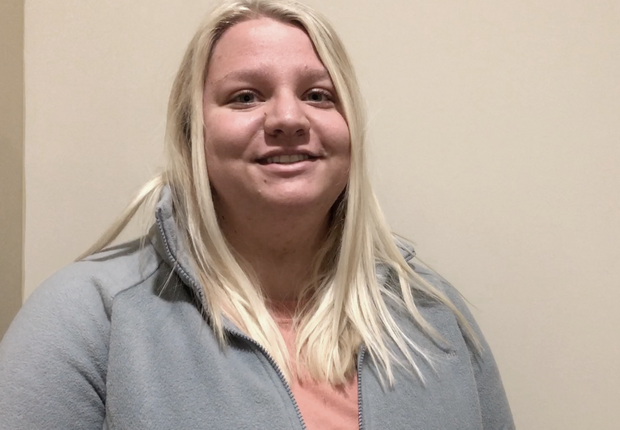
The medical journey of a family member played an important role in why Kelsey Hooker chose her future career path in medical laboratory science at NDSU.
“My mom fought cancer for seven years, and throughout her treatment, she went down to the Mayo Clinic, and one of her old co-workers, her daughter works as a medical laboratory scientist down there,” explained Kelsey. “She was the first one to really give me a tour of the medical laboratory and told me a little about what she does.”
That sparked Kelsey to investigate schools with accredited programs to help her on the path to her future career. “When I got to NDSU, it just felt like a second home,” she said. “Anyone who I met was very welcoming and very kind.”
NDSU offers a bachelor’s degree with a major in medical laboratory science. The program provides a blend of academic and hands-on opportunities. The degree path includes three years of coursework and an 11-to 12-month clinical experience through one of NDSU’s affiliated hospital programs in four states.
“It’s really fun to be interacting with patients, but it’s also nice to be behind-the-scenes and do some of the nitty gritty stuff to help out the doctors to make those patient care calls and diagnoses,” said Kelsey.
She also recounts interactions with faculty members that have made a difference in her academic career.
“I’ve enjoyed working with a lot of my lab professors,” said Kelsey. “It’s really a privilege to get to know your professors. Most of the professors that I’ve worked with are willing to stretch their neck out for you and help you achieve the goals that you want to achieve.”
In addition to her major, attending NDSU gave Kelsey a chance to grow in other ways, too.
“Part of why NDSU felt like a second home was because agriculture holds a big piece of my heart,” said Kelsey. “I was able to get involved with the NDSU Dairy Club and the judging team with Saddle and Sirloin on campus. The judging team took me places where I’d never thought I’d go and learn things I’d never thought possible.”
Kelsey emphasized that she can also use the presentation and other skills built through participating in extracurricular activities and apply them in her chosen career.
“The extracurriculars have really helped me enhance my skills. They’ve really helped me figure out how to begin networking, making presentations and applying hard work. That will transfer into my future career in medical lab science, too.”
When she embarks on her future career after her professional internship, Kelsey hopes to become engaged in research. “Getting to run experiments is just the coolest thing to me and if I can impact a patient’s care and life overall, it would be great to just be able to make someone’s life better.”
The U.S. Bureau of Labor Statistics expects the need for medical laboratory scientists to grow about 7 percent through 2031. The median salary for medical lab professionals in the U.S. was $57,800 in 2021.


